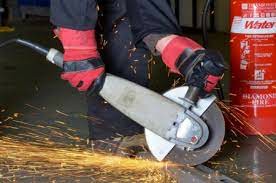


 349,500 Offered Certificates
349,500 Offered Certificates
 24/7 Online Training
24/7 Online Training
 Money Back Guarantee
Money Back Guarantee
 Fully Accredited Courses
Fully Accredited Courses

Created at: 23-02-2025 00:41
Abrasive wheels play a crucial role in various industries, enabling efficient cutting, grinding, and polishing of materials. Understanding the different types of abrasive wheels, their applications, and safety measures is essential for ensuring a safe work environment. In this guide, we explore the types of abrasive wheels, their industry applications, associated risks, and the importance of training and certification in Ireland.
Abrasive wheels are categorized based on their design and intended use. Here are the primary types:
Abrasive wheels find application in various industries throughout Dublin, Cork, Galway, Limerick, Waterford, and beyond:
While abrasive wheels are essential tools, they also pose several risks if not handled properly:
To mitigate risks associated with abrasive wheels, proper training is paramount. Certified training programs across Ireland offer valuable knowledge on:
In cities like Dublin, Cork, and Galway, you can find courses dedicated to abrasive wheels training, ensuring that operators are well-equipped to perform their duties safely. These courses often culminate in certification, providing a mark of expertise and adherence to safety regulations.
Understanding the types of abrasive wheels and their applications is crucial for anyone working in industries that utilize these tools. With the risks involved, ensuring that employees are trained and certified is key to promoting safety and compliance with Irish safety regulations.
For more information on certified abrasive wheels training in Dublin, Cork, Galway, or to enroll in an Abrasive Wheels Course, reach out to us at [email protected]. Ensure a safer workplace today!